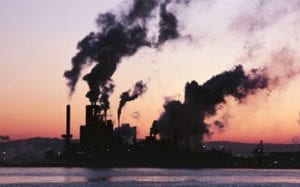Green skills are essential to ensuring a transition into a low-carbon economy.
According to a new report titled Greener Skills and Jobs, there are three ways that greening the economy will affect skills:- structural changes will lead to increased demand for some occupations and decreases for others
- new economic activity will create new occupations and there will be a need for new skills profiles and qualification and training frameworks
- many existing occupations and industries will experience greening changes to tasks within their jobs, which will require adjustments to the current training and qualification frameworks for theses occupations.
The report points out that a failure to understand and address the need for green skill could force gaps that may lead to skills bottlenecks. This could stall economic activity because of the unavailability of the correct skills, or make the cost of these skills too high to viably use. Skills shortages could lead to increased costs to climate change, mitigation and adaption, diminishing support for these actions, leading to greater costs in the long term.
The necessary changes in curricula and competency frameworks needed for the widespread adoption of green skills is limited. The report argues that optimising public policy is key for the transition. Green skills development must be integrated into wider training skills development policy rather than being seen as additional to or separate from other forms of development.






